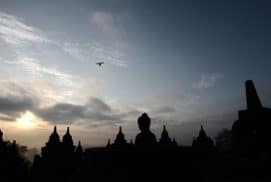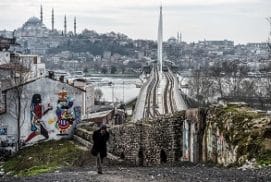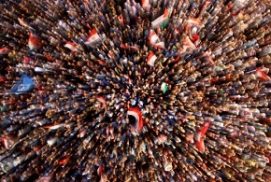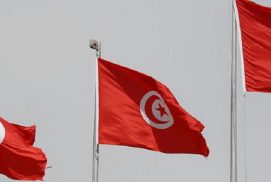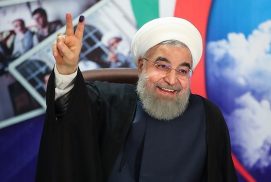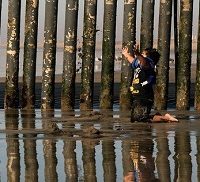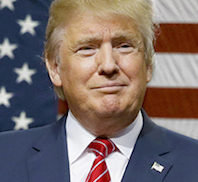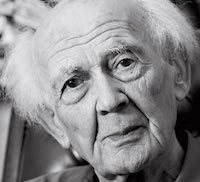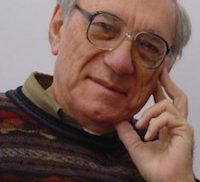The choice of Francis as his papal name by Jorge Mario Bergoglio immediately signaled the doctrinal orientation of his pontificate. Following in the footsteps of Saint Francis of Assisi, the new Bishop of Rome would uphold three guiding principles: love for the poor, care for our common home, and a commitment to a culture of encounter and peace. A commitment that his critics have sometimes labeled as populist—despite his explicit rejection of that label. Pope Francis’s outlook was, in fact, open, transnational, and pluralistic—the very opposite of European populisms. From his earliest symbolic gestures—from refusing the papal apartments to embracing migrants in Lampedusa—Bergoglio embodied a “Church that goes forth,” one that engages with the world not with doctrinal arrogance but with a spirit of service. His language, stripped of curial formalism, brought the papacy closer to the people, while the vision of the pope “from the ends of the earth” shifted the Church’s center of gravity away from Europe, toward the peripheries of the planet, and above all toward a new alliance between faiths, cultures, and peoples. In this dossier, we offer a series of reflections on the legacy of his pontificate and the future prospects of the Church.
Dossiers
- Indonesia has been able to emerge from years of difficult dictatorship and from the grip of the financial crisis of the late 90s, persisting with the development of its coexistence model.
- One year and a half after the attempted coup d’état, the political and social situation in Turkey continues to be extremely critical. While the state of emergency is still in force after having been extended every three months since July 21st, 2015, the groundwork is being laid in the country, preparing for the 2019 general election which is expected to bring into force the presidential regime approved by the much-debated referendum.
- The Arab world has been debating the question of the form of the state for the last two centuries, and division as well as diversity in the debate is visible both theoretically as well as politically. The situation of turmoil in that part of the world testifies to the vitality and disagreements on the future of such a state.
- Six years after the 2010-2011 uprising, the so-called Arab Spring, that started in Tunisia and spread across the Arab region, the country is actually going through a difficult phase of transition to democracy. In our dossier we focus on three aspects: the political one with an analysis of Al-Nahda’s political evolution (Longo), the economical recovery (EL Houssi) and the lasting social tensions (Mbarek).
- Islam is no longer a transitory phenomenon but European societies seem to consider Islam, in recent years, more a threat than an advantage. Our dossier presents some reflections which consider Islam as an element of European society and as a propagator of Europeanization. An analysis is also given of the implications of the role of Islamic organizations working in Europe but connected to governments of other countries, such as the Turkish Islamic organizations active in Germany. Lastly, we propose two essays on two recent films concerning a rapidly increasing phenomenon, the radicalization of younger generations in Europe and a book review on the Burkini debate.
- On Friday May 19th Iranians lined up at polling stations in such numbers that elections officials had to extend the voting until midnight, confirming that the abstention risk was only a spectre. President Hassan Rouhani has been re-elected for a second term with a massive turnout both in rural areas and in large cities. Our dossier analyses different aspects and motivations of its result, from women and workers point of view to more geopolitical and economic aspects.
- From India to Russia, the world is experiencing a new rise of illiberal trends and the return of strongmen. Reset DOC ‘s articles try to analyze this ongoing process and its actors.
- At the dawn of Trump’s presidency, we selected a shortlist of our analyses on the path and consequences of his rise to power.
- Zygmunt Bauman died yesterday at the age of 91. His death marks the loss of one of the most distinguished European intellectuals. Bauman gained widespread acclaim for his capacity to give a voice and language to contemporary social configurations. The end of Fordism – the main theme of Bauman’s work in the last few decades – as well as the transition to a “liquid society” have dominated his reflections and, due to his work, now appear to us as common sense. His last essay for Reset-Dialogues on Civilizations was about Trump: “The strongmen and the anxious class”.
- Sadiq Jalal al-Azm was born in Damasus in 1934 and died in Berlin on December 11th 2016 following a battle will illness. He was one of the most prominent and influential Muslim philosophers and thinkers of the last century. His books, articles and essays inspired a whole generation of liberal scholars, “good liberals”, as defined by Mohammed Hashas, that are not blind to external hegemony and internal state oppression. He has lived in changing societies and he continued to critically analyse them till the end, Reset Doc have had the honor to publish some of his thoughts and to host him as a speaker at the Istanbul Seminars in 2010. In this dossier we present both new analysis and testimonies from our archive of his work.



